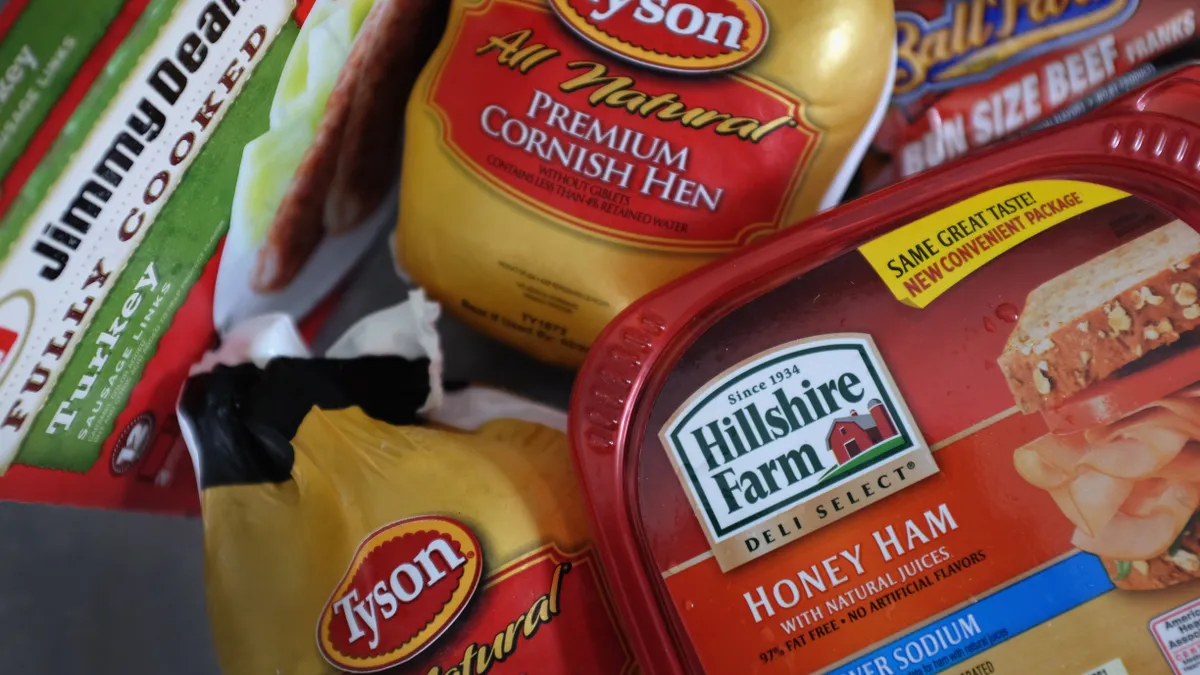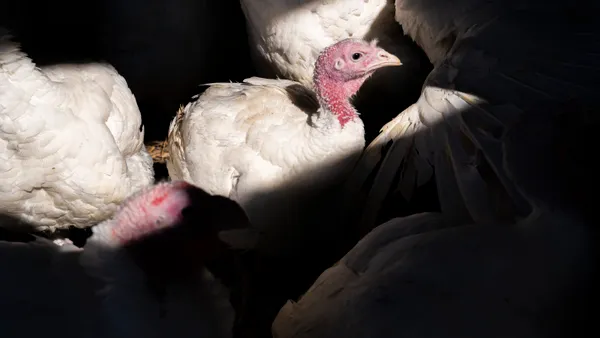Dive Brief:
-
Tyson Foods, Inc’s “bold actions” are yielding tangible benefits across the company, setting the stage for a potential recovery in its chicken business this year while beef issues weigh down profits.
-
“Everything remains on the table to drive operational excellence and address inefficiencies,” CEO Donnie King said in an earnings call Monday. In the last year, Tyson has closed six chicken processing plants and two case-ready meat facilities to help shore up costs.
-
Additionally, certain grain and protein markets are starting to recover, improving profitability for chicken and pork while beef cattle inventories remain historically low. First-quarter results beat analyst expectations.
Dive Insight:
Increased pricing in Tyson’s beef segment offset sluggish demand, while lower pricing spurred pork and prepared foods activity, according to the report. In the first quarter, sales totaled $13.3 billion, relatively unchanged from last year.
“While I'm pleased by the performance in Q1, we still have more work ahead of us, and we're cautiously optimistic and laser-focused on achieving what we set out to do this year,” King said in the call.
Meanwhile, income totaled $231 million, a 50% decline from last year due to a tighter cattle market that fueled margin compression headwinds during the quarter. There was also a costly inventory valuation adjustment — that accounted for half of the Q1 loss — driven by highly volatile cattle futures challenges, King said.
Aside from beef, Tyson started to experience favorable market dynamics in the quarter, including lower raw material costs for prepared foods and improved demand for chicken and pork.
Looking ahead, King said he was “cautiously optimistic” about chicken as the business realizes benefits from a series of plant closures. Pork also started the year stronger than Tyson expected. This led to upward fiscal 2024 guidance revisions of $100 million for both segments.
Tyson’s first-quarter results came in well above analyst expectations, according to Zacks Equity Research. The Arkansas-based company reported adjusted earnings of 69 cents per share compared to the consensus estimate of 42 cents per share.
Despite the relatively strong start to the year, Tyson’s second quarter is seasonally weaker than the rest of the year and so far there have been “several significant weather events,” King said.
“But…it’s still early in the year and we don’t want to get ahead of ourselves. We have a lot of work ahead of us, and we’re leaving no stone unturned,” he added.











